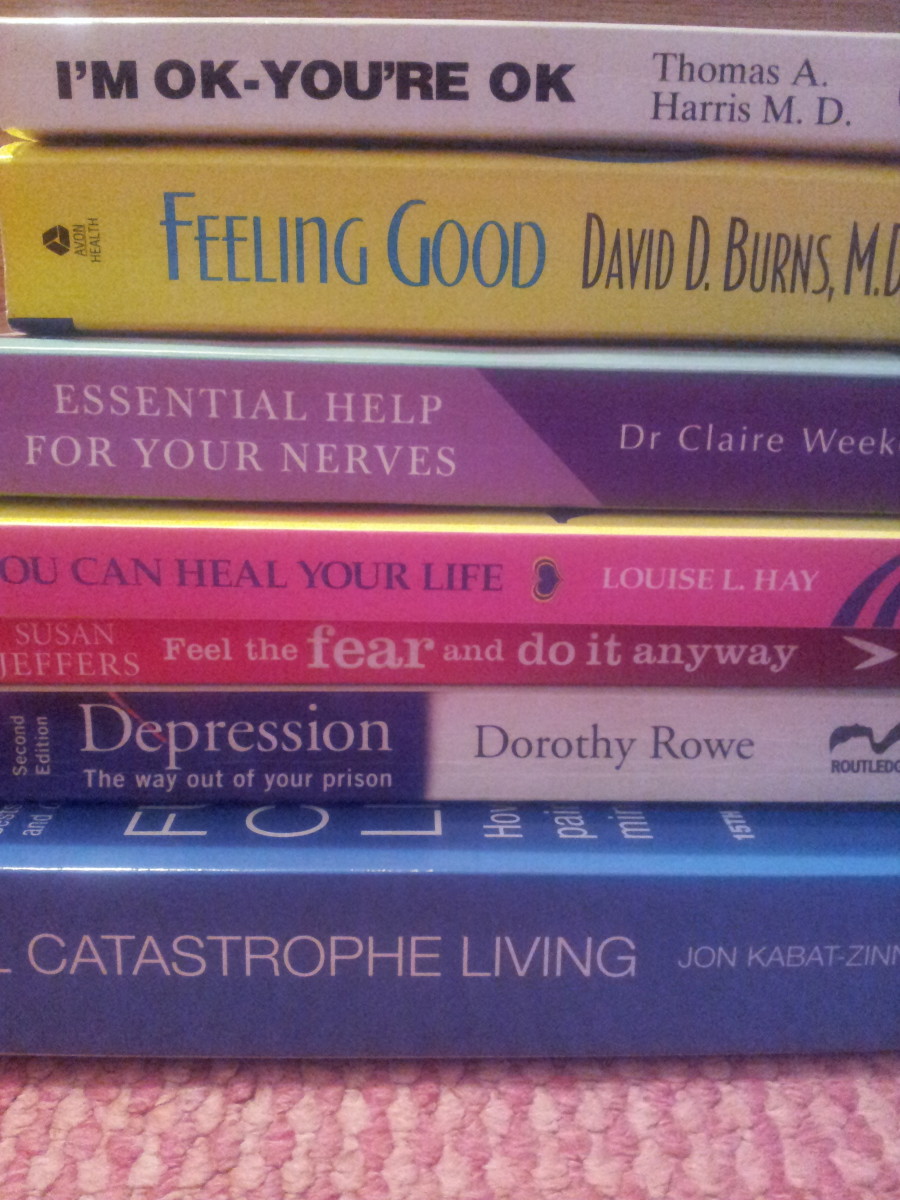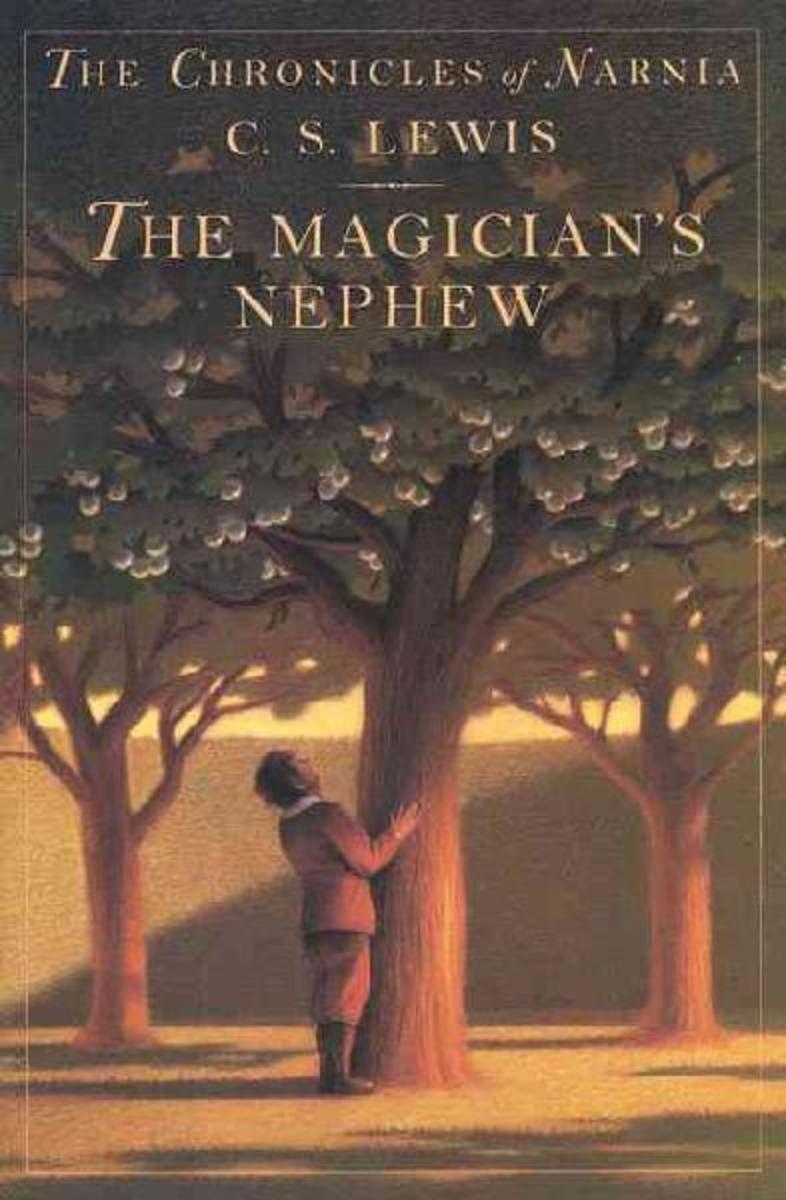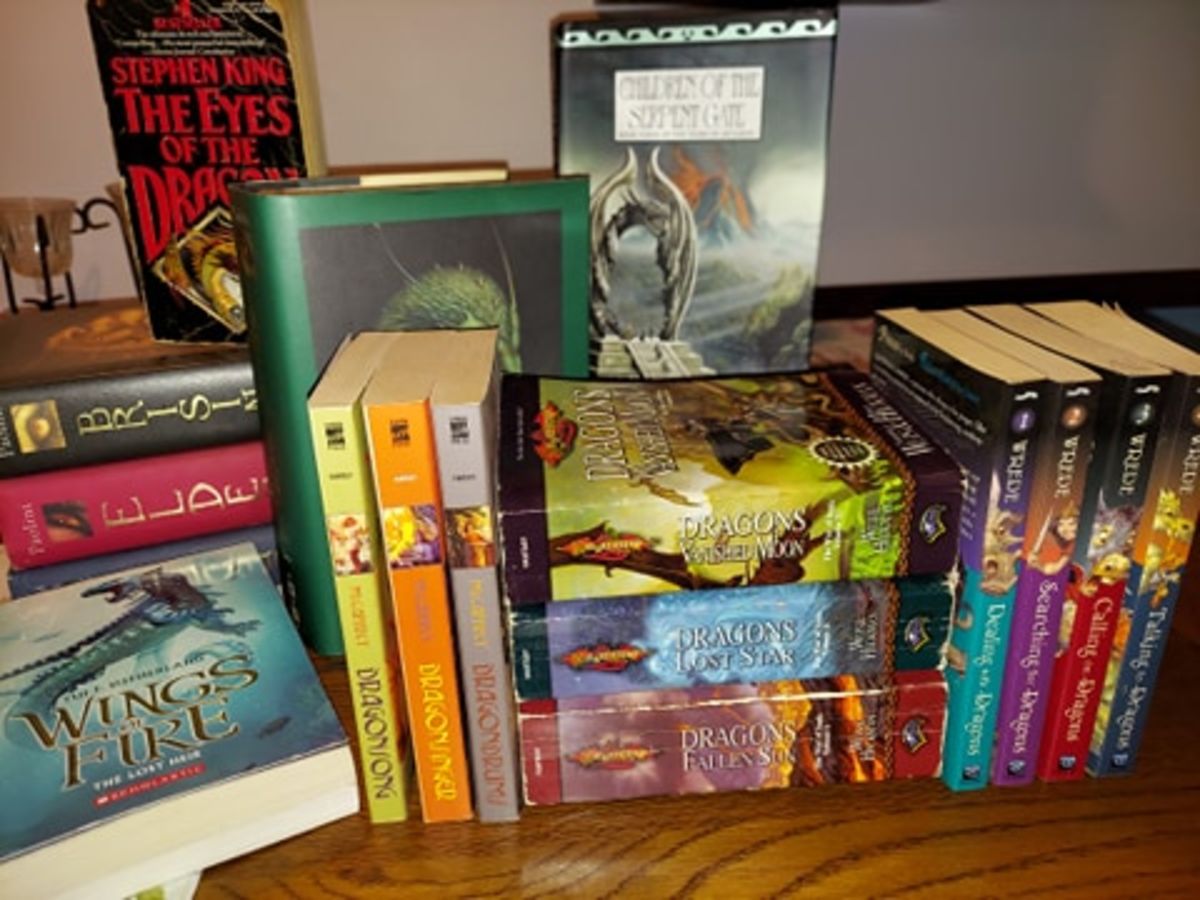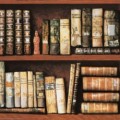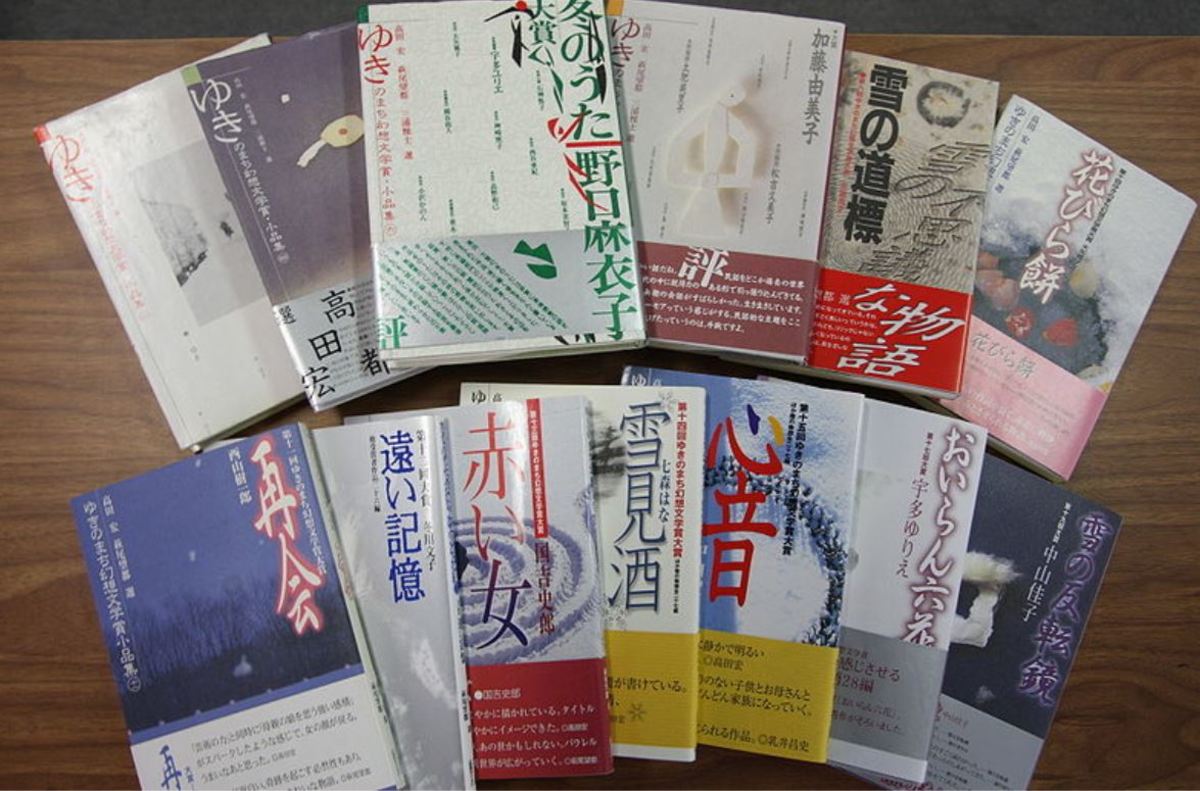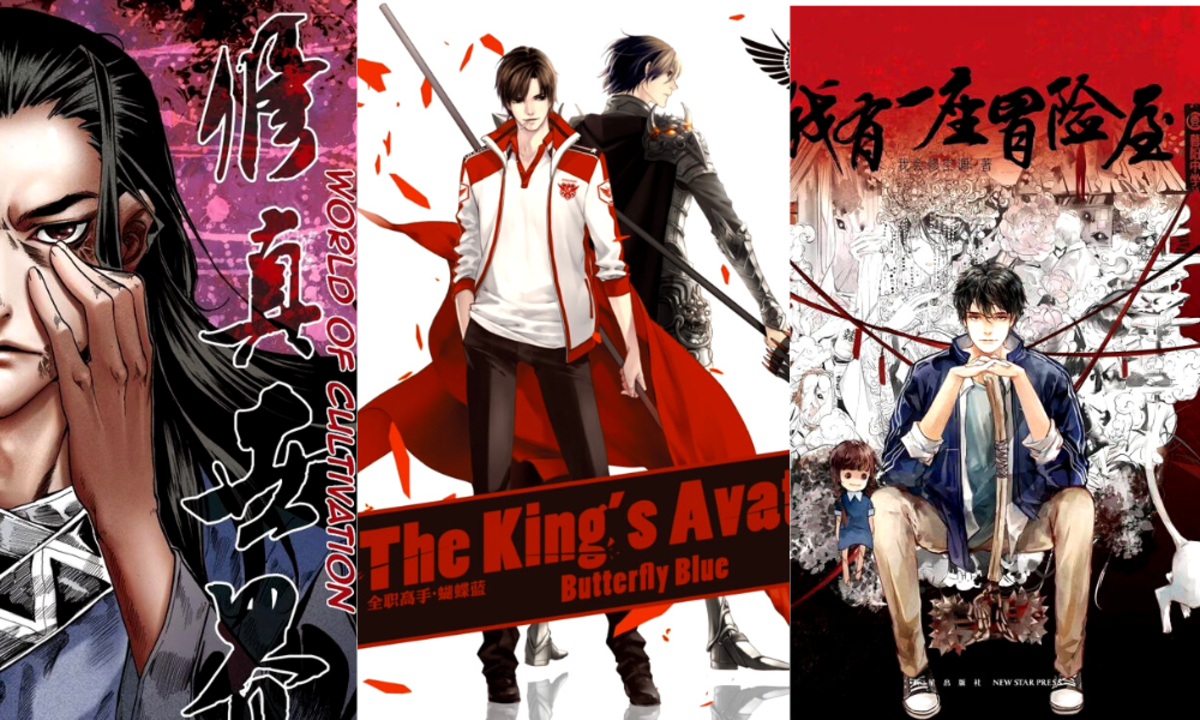Returning to Narnia
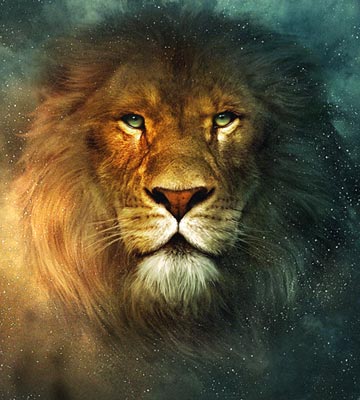
Twenty-five years on...
It has been rather a long time since I was first in Narnia. I thought about revisiting that magical place when my seven-year-old son recently became interested in the books. I remembered that I had been seven myself on the Christmas when those most precious of books had been given to me. I even remember the circumstances vividly: my mum had sent my dad out on Christmas Eve to buy me an extra present because my pile of gifts seemed a little small compared to my brother’s. My dad was off into town for his usual Christmas Eve drink at The Blue Anchor, so it was not at all guaranteed that he would remember to buy me the extra present.* But remember he did, just as he was leaving the pub, happily for me. By chance he happened to find the most wonderfully beautiful boxed set of treasures and did not stop to look at the price, thankfully – probably he could not read the price, in his sozzled state, and a good thing too, because in his right mind he would never have handed over so much cash. My mum almost had a heart attack when she saw how much he had spent, but I think she was secretly pleased. She would have wanted me to have the books, but she would never have bought them herself, as they cost more than the week’s shopping budget. In 1984 we are talking roughly £10, a lot of money to us then.
For a long time I did not read the books. I think that I was intimidated by them. I had never possessed such beautiful things, and I was in awe of them. I really wanted to dive in and read them all without stopping, but I wanted the time to be right I think. But eventually, I did read them, when I was nine. It took me two years to pluck up the courage to introduce myself to Aslan. But oh! when I did! It was like nothing I had ever read. It was the first time I had heard of fauns, or centaurs, or dryads, or satyrs, the first time I had read about swords fights, or good versus evil, or indeed fantasy. It changed my life, just a little. I would have discovered fantasy at some point, but this was a defining moment I think. Wherever I have been during the course of my life so far, living in different houses, being a student at university, building my own bookcase in my own house, my Narnia boxed set has always been on display. I have always been able to find it in a moment, have never had to search for it at the bottom of a packing box, have never worried over it being lost in a house move. It is very precious to me. And yet, I only actually read the books once. Shocking, I know. It looks like a set of books that have been read many times over, so worn are the corners of the box, so cracked are the spines of each book. But no, once only. Why I read it just the once I cannot tell. Perhaps I told myself that I needed to save it as a reward for reading loftier books, as I now do with others of my favourites: Anne of Green Gables, Harry Potter, Discworld novels, anything by Jane Austen (possibly trash to you, but treasures one and all to me - you choose your treasures, and I'll choose mine.)
Well, I had not read anything intellectual this year, but I had it in my mind to read my Narnia books. I tried to read the Pickwick Papers first, so that I might be justified in rewarding myself; but the Pickwick Papers is an enormous book and after two or three chapters, during the reading of which my eye kept flicking over to that boxed set of delights, my resolve wavered terribly and I gave in.
I carefully and reverentially slid the first book of the seven from the box: The Magician’s Nephew. It seemed almost to crackle and fizz with magic as it lay in my upturned palms, and as I gazed at it I was more than a little convinced that the deep buzzing in my ears might be coming from the raw energy of Narnia reawakening inside the fusty pages. And was that the sound of Narnian voices tentatively testing the vibrations in the air for the possibility of a willing imagination come to kindle the flames of life for them once more?
Why the films always begin at The Lion, The Witch and the Wardrobe I do not know. The Magician’s Nephew tells the story of the creation of Narnia, and it has always been one of my favourite books. I have always loved the concept of the yellow and green rings, and always wished that I could have them in my possession, to flit back and forth to the Wood Between the Worlds whenever I wished. I cannot understand why this book is always overlooked. I entertained the possibility of it being brought to life on celluloid when I first heard that the Chronicles were being made as films again a few years ago, but I suspected that some of the books would be omitted as usual. They were. The Horse and His Boy is the other casualty, alas - though perhaps, this omission is understandable, considering the blatant racism displayed in the entire book; although I cannot help but think that a team with imagination could have eradicated all traces of this from the story and made it more palatable to a modern audience. We will never know. We shall see whether The Silver Chair and The Last Battle make the cut.
I have now come to the end of my rereading of the Chronicles of Narnia. And might I say that I found them to be more beautiful this time than they were the first time. Age and a little bit of wisdom has had a strange effect on me when it comes to rereading the novels of my childhood, and a new poignancy has been added to the mix. When I read these books as a child, I loved them, and I was sad to finish them. But now there is something more, something deeper, something that screams out for my childhood to return, and mourns for its loss, something that is saddened by the arrow of time travelling in one direction only. We cannot go back, really. This message rings very clear in the Narnia books, particularly in the final chapter, The Last Battle. Of course, this is ridiculous in real life, because my childhood is not lost at all, it is still with me, embedded deeply in my personality, and will be there until I die I don’t doubt. And in any case it is only a concept: there is nothing in the rule book of life that tells us to stop playing at a certain age, and growing up is just something we do because we’re told to by other people who have left childhood behind. Yes, of course, with age come certain responsibilities, but they need take nothing away from our inner child. Work can be done, bills can be paid, but in our spare time we are still free to climb trees, to build dens, to pretend to be pirates if we so choose. The sadness that strikes me when I come to the end of books such as these is only temporary. I always find that I am able to move on, and find something else to be childish about.
I was struck this time around by how blatantly religious and analogous to some of the Bible stories these Narnian tales are. I had heard of some of the debates surrounding the Chronicles, but had never paid much attention to them. My attitude was to think something along the lines of 'Aslan is supposed to be Jesus? Pah! How ridiculous, of course he isn't!' As a child who was brought up almost without any religion (I heard the Bible stories at school, and was told that I believed in God) the direct representation of Jesus as Aslan went completely over my head. Narnia as Heaven was a concept that I didn’t spot at all. The dwarves who represented atheists, wicked and selfish, entering Heaven and seeing nothing but darkness because they chose not to believe in Aslan/God, were just silly ignorant mythical beings to me. I had no idea that everything in Narnia was there by clever design, intended to show me the Christian Light. Now I see it plainly, it is all so obvious. But dressed up as the stories are, in their interestingly and contradictorily pagan clothes, with their solstices and festivals and feasts, nothing is taken away from the them for me. I love them still, and who knows that they may even be the richer because I understand the motivation behind them. Those deeper meanings, that were hidden from me when I was nine, have added their voices to the many that already clamoured for my attention when I decided to pick up my beloved books once more. I was ready to listen to Tumnus the faun, to Prince Caspian, to feel Lucy’s sadness at the realization that she would never see Narnia again, to experience her joy when she returns at the last. I do not believe in God, or in Heaven, but I cannot find it in myself to feel annoyance at C.S. Lewis for lecturing me, for making me an ignorant dwarf in his fictional world and casting me down into the blackness. I see what he was trying to tell me, I assess it, and then I, in my magnanimity (were I permitted to use an emoticon in my hub, I would insert a smiley face with a wink here, to show that I am only teasing,) allow it to enrich the experience. After all, were it not for Christianity, Narnia would not exist at all.
I am also aware of the controversy that the books caused, and continue to cause, with regards to their undisguised anti-Arab racism, and their depiction of Arabs, who are represented by the Calormenes, as Satan worshippers. These ideas are disturbing indeed, and I am saddened by them. There can be no denying that C.S. Lewis's views on these subjects are written out for all to see. But what am I to do with this? Am I to allow this one flaw, albeit a major one, to prevent me from enjoying a beautiful work of fiction that is otherwise flawless to me? I think not. I am not racist, but I recognise the racism, so I can consider it, weigh it, and then put it away. As a lover of epic fantasy, I feel I am within my rights to do this. And actually, I am now wondering just how racist Lewis actually was, since he wrote an interracial marriage into the story - the two main characters of The Horse and His Boy, one fair skinned and one dark, do marry and produce heirs of mixed race. Just something to ponder...
There has also been much debate on Lewis's degrading depiction of the female characters. Personally I do not subscribe to the view that Lewis's portrayal of girls was sexist. Indeed, Lucy Pevensie is by far the strongest and bravest character in the whole story. Jill Pole, Aravis Tarkheena, Polly Plummer, all very strong and independent ladies, who do as much rescuing as they are rescued. Far be it from me to disagree with such revered novelists as J.K. Rowling, and Philip Pullman, but disagree I do. The Chronicles of Narnia do not present themselves to me as sexist. Not at all. They are refreshingly balanced in this regard.
The enduring joy that I gain from Narnia is in the strong sense it gives me of my childhood still being with me whenever I need it – I do not have to let go of that if I do not want to. Seven small novels are all that exist of Narnia, and I am sad to reach the end of them. But ah! what is it that we know as adults that we never know as children? That we can read the stories again whenever we like – that we can return to the beginning, and our fictional worlds can be reborn, in a never ending cycle.
Ouroboros Narnia, I will return to you one day in the not very distant future.
The Magician’s Nephew
The Lion, The Witch and the Wardrobe
The Horse and His Boy
Prince Caspian
The Voyage of the Dawn Treader
The Silver Chair
The Last Battle
*My dad was not, and is not, an alcoholic. Drinking on Christmas Eve was what blokes did in those days; drinking on Saturday afternoons, and on Sundays was also common, as was chips-with-everything, HP sauce, eating our tea on our knees in front of the telly when watching Saturday afternoon wrestling and darts.
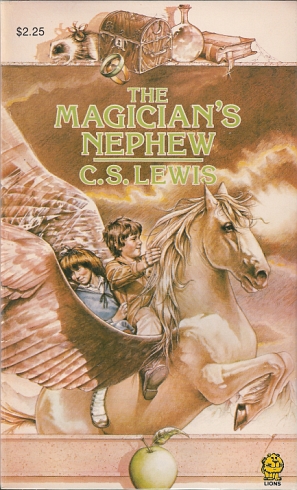
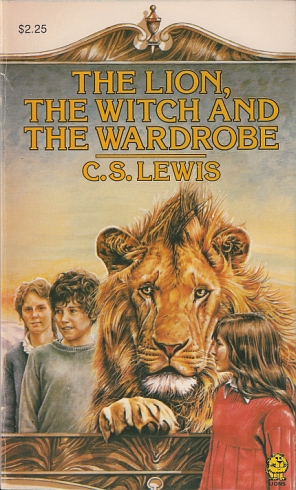
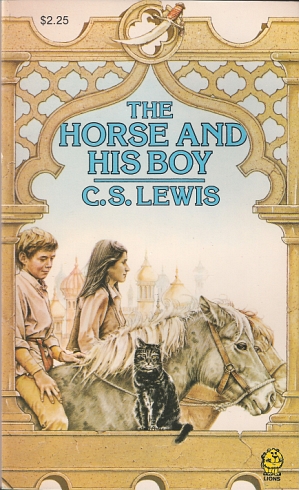
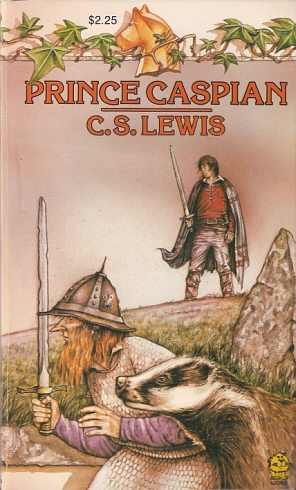
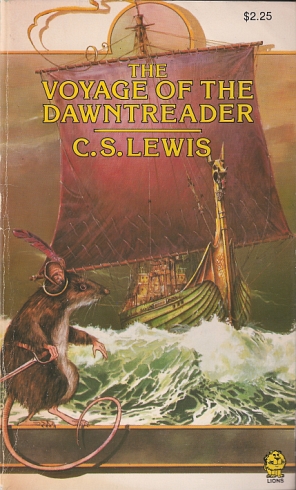
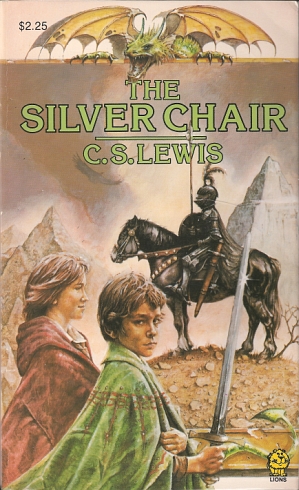
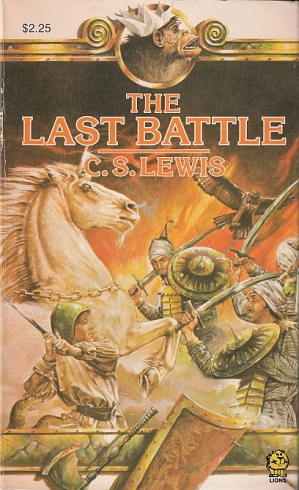
The Magician's Nephew has a special place for me, because it is much underestimated. It stands alone as a wonderful story, to my mind. The character of Uncle Andrew is hideous, and was the first character I can remember feeling truly afraid of. When the Chronicles of Narnia begin with the second book I think they are sorely lacking a proper beginning; this book is that perfect beginning, whatever you think of Creation Theory.
The Lion, The Witch and The Wardrobe. Undoubtedly the most famous of the Chronicles, and possibly for good reason. I love it for its Christmassy atmosphere, its Turkish Delight, and its shameless adaptation of the story of the Crucifixion alongside the inclusion of a jolly old Father Christmas (who is purposely and Englishly not called Santa Claus.)
The Horse and His Boy is probably relatively unknown, which is a great shame as it is a lovely book. It introduces the reader to the land to the East of Narnia, known as Calormen. Some of the characters and situations might reveal a rather racist side to C.S. Lewis's writing, but we might allow him the benefit of the doubt and consider that he was writing at a time (only sixty years ago, mind) when such attitudes were more commonplace.
Prince Caspian is beautiful. My only criticism of this book is its length, as I could very happily have read twice as much. The prince, like all of Lewis's heroes, is gentlemanly in the extreme, as good as it is possible for one man to be, but fortunately for him he is also likeable. This book is deliciously Narnian, with a good helping of Talking Beasts, most notably in the form of Reepicheep the most excellent and honourable mouse.
The Voyage of the Dawn Treader is a joy. This book just flows beautifully, and I reached the end of it before I realised I was even close to it. With a refreshing nautical theme, the fresh air is almost tangible in this book, and it feels lovely to come out of the Narnian woods for a spell. My only criticism of this book are the Dufflepuds. They are a silly creature too far for me.
When I said that I loved the Chronicles, I was not actually being truthful. I do not love The Silver Chair, and this is perhaps because it is the least Narnian of the books. There is not much of Narnia in it, the story is very weak, and it does not help to progress the larger story at all. If you had to miss out one of the books then this would be it. I like it, but I do not love it.
Blatantly religious, blatantly racist, blatantly anti-atheist, but still I love The Last Battle. It reminds us of what we loved about Narnia at its creation in the first book, and brings the Chronicles to a beautiful and satisfactory conclusion. Some say that Susan Pevensie is banished because she has discovered her sexual urges - however, I prefer to believe that she is banished because she has simply grown up and forgotten about Narnia. Silly woman.

